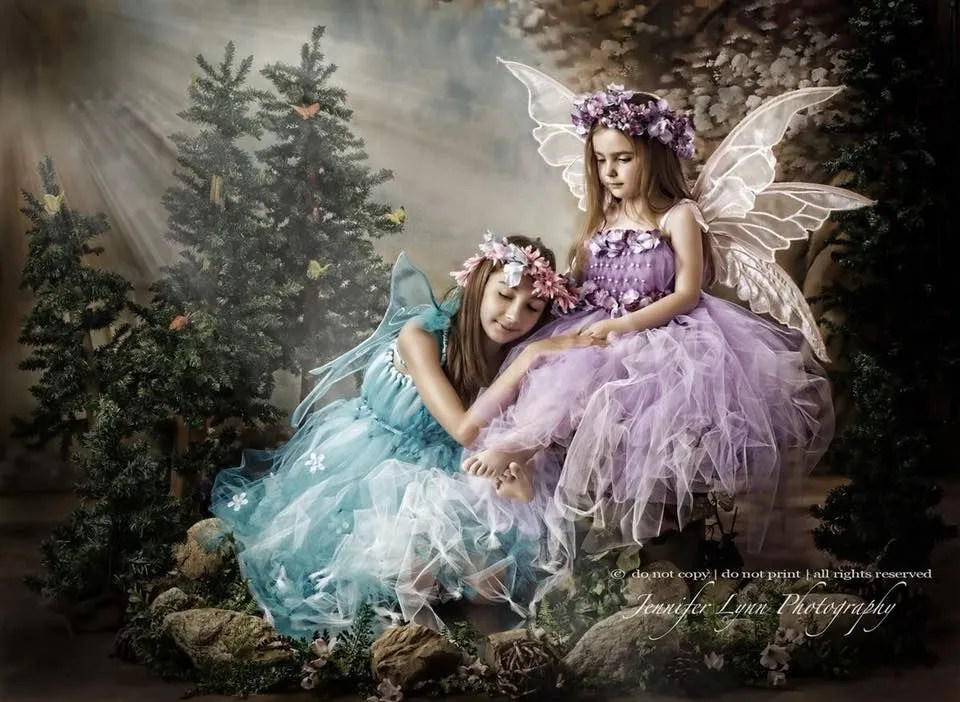I am no longer blacklisted. However, I forgot to stop declining the payout. This is done now. So, starting tomorrow, you can upvote my posts. And of course, you can continue to comment.
THE TWO TWINS AND THE TWO FAIRIES
There were, once, two twin brothers, beautiful as day, strong and bold as Caesars. One evening when these two twins were returning from the fair of Mirande, they had to cross a large forest. It was in July, around nine o'clock in the evening. The moon shone in full force. Suddenly they heard laughter coming from a thick thicket of thorns.
“Hi! hi! hi!"
'Hi! hi! hi!"
The two twins pulled on the harness of their horses.
“Do you hear, brother?”, said the eldest.
"Yes, brother. These are the laughter of young girls."
At that moment, two young girls emerged from the thick thicket of thorns, dressed in gold and silk, and beautiful as angels.
“Good evening, young people."
"Good evening, ladies."
"We are not young ladies. You are twin brothers. We are two twin Fairies. If you want to marry us, we will make you rich like the sea, and we will give you beautiful sons, strong and bold like you."
“Let’s get married,” said the eldest. "I take the eldest."
"Let's get married. I'll take the youngest."
"Well, said the Twin Fairies, we will get married tomorrow morning. Go home. But, at dawn, be at the door of the church which is at the entrance to the forest. In the meantime, be careful not to eat or drink anything. Otherwise, a great misfortune would happen."
"Fairies, you will be obeyed."
The two twins greeted the two Fairies, returned to their parents, and spoke to them about nothing. They went to bed, without eating or drinking. But, at two o'clock at night, they got up slowly and quietly and left the house.
“Come on, quickly. We have just enough time to arrive, before dawn, at the church which is at the entrance to the big forest."
As they walked, the two twins crossed a field of wheat almost ready to be harvested. Without paying attention, the cadet picked an ear of corn, detached a grain from it, and crushed it under his teeth to see if it was dry.
Before dawn, they were in front of the church, at the entrance to the big wood. The door was open, the altar prepared, and the candles lit.
The two Fairies were waiting, dressed as brides, with the white dress and veil, the crown on their heads, and the bouquet on their belts.
“My friend,” said the youngest of the twin Fairies to the youngest of the twins, “you have forgotten your promise not to eat or drink anything. Thus, you are the cause of great misfortune. By marrying you, I became a young girl like any other. Now I am a Fairy forever."
The youngest of the Twin Fairies left, and her lover never ever saw her again.
Then the priest and his clerk said the wedding mass for the other engaged couple. This done, the youngest said to the bride and groom:
"Farewell. I am going far, far away, to become a monk in a convent. Tell my father and mother that they will never ever see me again."
The youngest left immediately, and the eldest took his wife to his parents. In the evening, before going to bed, she said to her husband:
"Listen. If you care about me, be careful not to call me either fairy or fool. Otherwise, a great misfortune would happen."
"Woman, be calm. I will never call you fairy or fool."
For seven years the man and woman lived contentedly. They were as rich as the sea, with seven boys in their castle.
One day when the husband left for the fair, the wife commanded in place of the master. It was around mid-July. The weather was superb, and the wheat was almost ripe.
The mistress of the castle looked at the sky.
“Come on, servants. Come on, sharecroppers. Quick quick. Cut the wheat. Tighten the sheaves. Quick quick. Hail and storms are near."
"Madam, you are not thinking about it. The weather is superb, and the wheat will only be ripe in eight days."
"Do what I command you."
The valets and sharecroppers obeyed. They were still working when the master returned from the fair.
“Woman, what are these people doing?"
"My friend, they are doing what I ordered them."
"Woman, the cut wheat is not yet ripe. You must be a fool."
Immediately, the woman left. That same evening, the storm and hail ruined the whole country.
However, the Fairy returned to the castle every morning, at dawn. She entered the room of her seven children, and combed them, crying, with a beautiful golden comb.
“Poor children, never tell your father that, at dawn, I come to your room every morning to comb your hair with a beautiful golden comb. Otherwise, a great misfortune would happen."
“Mother, we won’t tell him."
But the father was surprised to see his sons always so well combed. He told them every morning:
“Little ones, who keep you so well combed?"
'Father, she is our servant. »
But the father was suspicious. One evening, he pretended to go to bed and hid in the room of the seven children. At dawn, their mother came in to comb them, crying, with a beautiful golden comb.
Then the man couldn't hold it any longer.
“My poor wife, come, come."
But the Fairy left like lightning. Neither her husband nor her seven children ever saw her again, ever.
Source: Les Deux Jumeaux et les Deux Fées, from the French book Contes populaires de la Gascogne, tome 2, published in 1886
Previous Tale: The Bastard
Next tale: The Three Orange Apples
Hello, my name is Vincent Celier.

I am writing translations of folk tales that I found in public domain French books, so that people who do not understand French may enjoy them too.

This is a short tale from a section of the second volume, titled Fairies, Ogres, Dwarves.
The story does not have a happy ending. Even though the two twins try to follow the instructions of the fairies, with only two missteps, they immediately lose their happiness.
It is even sadder for the children of the eldest twin, as they will never see their mother, because their father called her a fool, and he came to their bedroom and saw their mother.
They live in a castle, so there must be many bedrooms. So, how come the seven children sleep in the same bedroom? I believe it is for the convenience of the tale, as the mother and the father only have to go to a single bedroom to see their children.

Kati left the house at six in the morning and returned before eight with four workers from the same family: the father, the mother, the son, and the son-in-law.
They worked in the vineyard, trimming the vines.
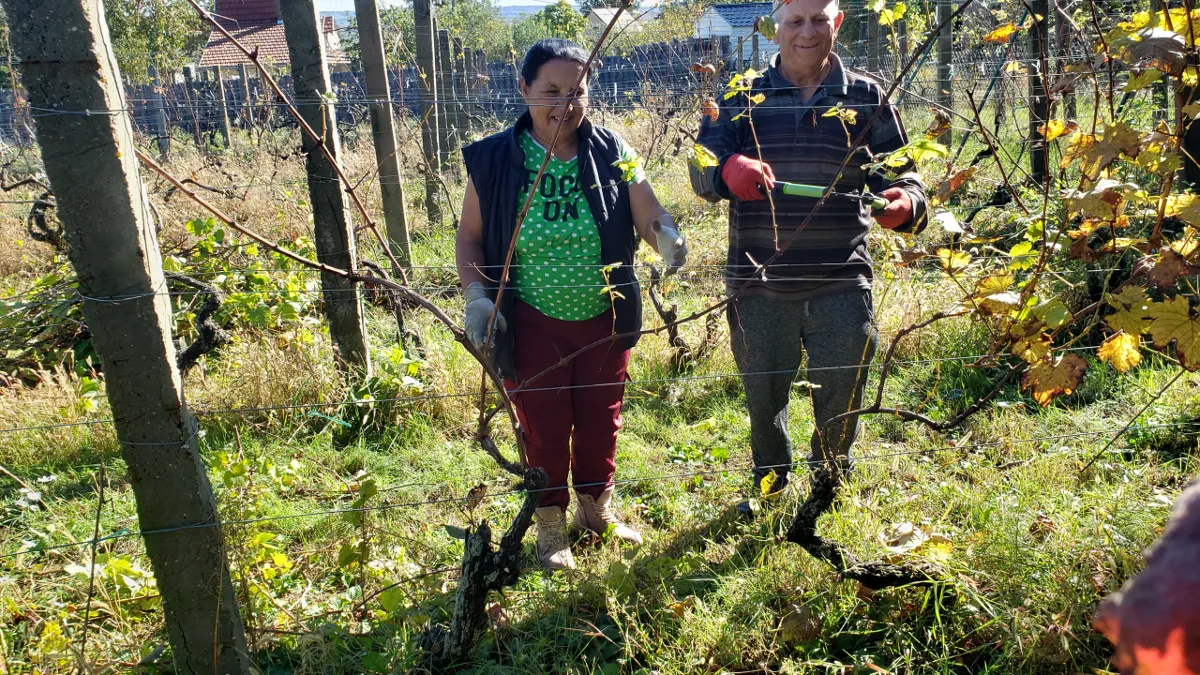
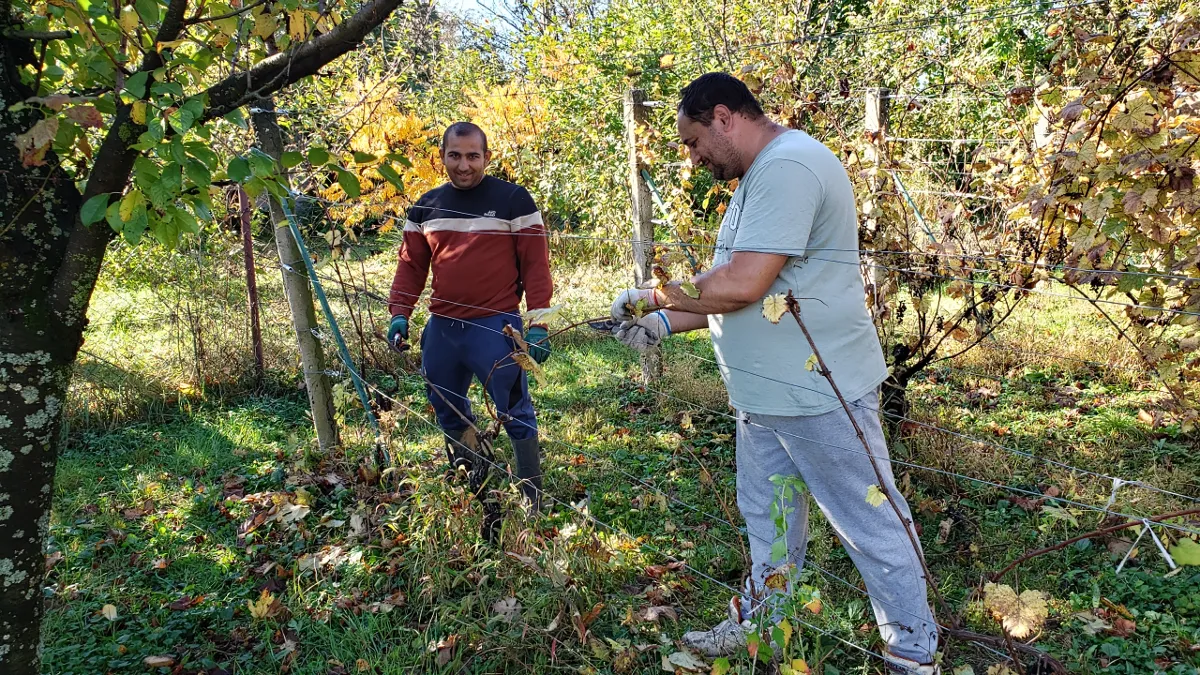
At lunch, Kati gave them some of the sausages that she had coked before.
After they finished their work, I drove them home. They live in the same village, Alsószentmárton, which is located near the border with Croatia. The population of this village is composed of Romani people.
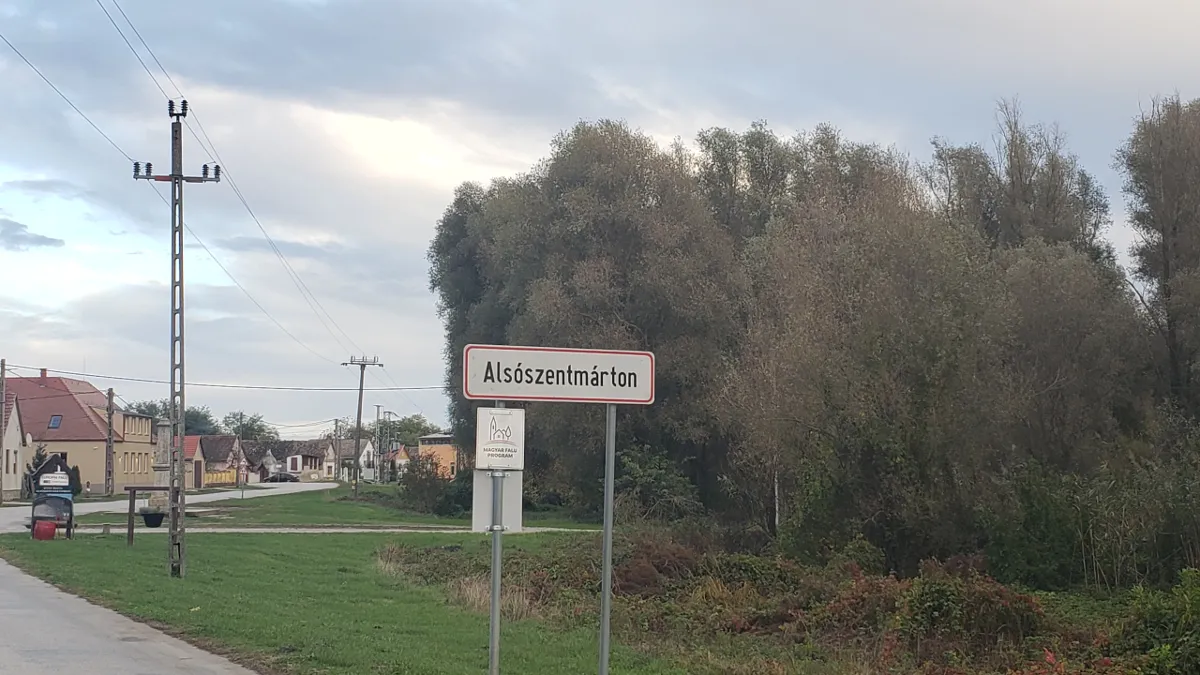
Alsószentmárton means "Lower Saint-Martin".
**
When I was back at the house, I found that Kormi is a happy dog.
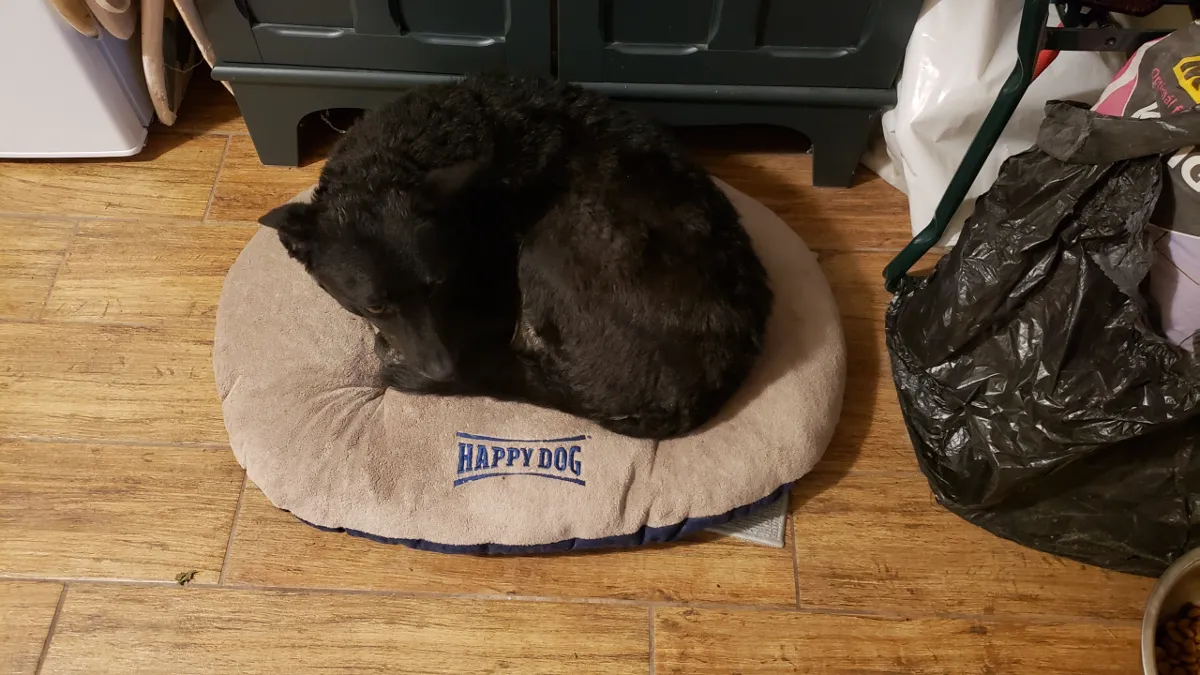
-- Vincent Celier
